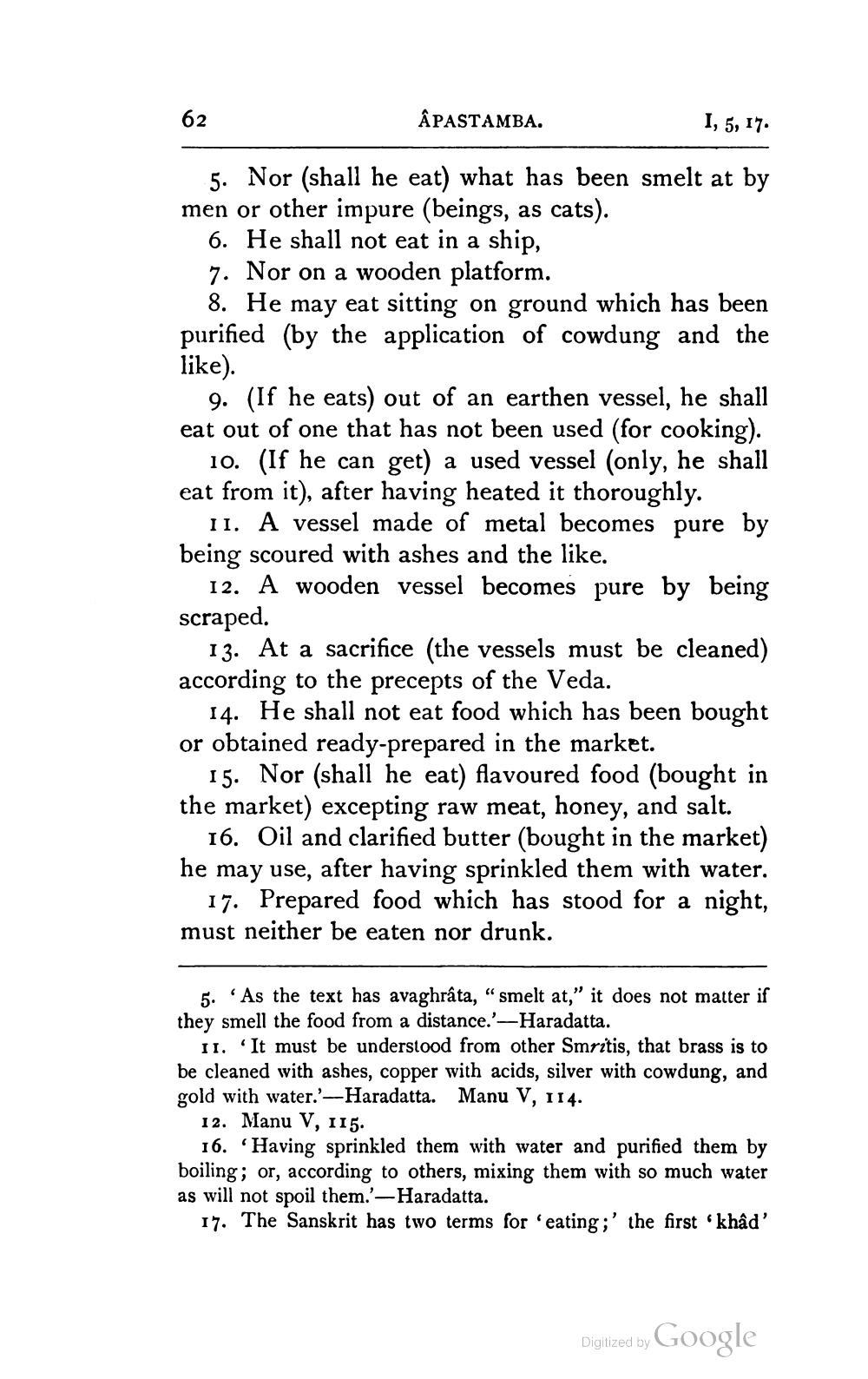________________
ÂPASTAMBA.
I, 5, 17.
5. Nor (shall he eat) what has been smelt at by men or other impure (beings, as cats).
6. He shall not eat in a ship,
62
7. Nor on a wooden platform.
8. He may eat sitting on ground which has been purified (by the application of cowdung and the like).
9. (If he eats) out of an earthen vessel, he shall eat out of one that has not been used (for cooking).
10. (If he can get) a used vessel (only, he shall eat from it), after having heated it thoroughly.
II. A vessel made of metal becomes pure by being scoured with ashes and the like.
12. A wooden vessel becomes pure by being scraped.
13. At a sacrifice (the vessels must be cleaned) according to the precepts of the Veda.
14. He shall not eat food which has been bought or obtained ready-prepared in the market.
15. Nor (shall he eat) flavoured food (bought in the market) excepting raw meat, honey, and salt.
16. Oil and clarified butter (bought in the market) he may use, after having sprinkled them with water.
17. Prepared food which has stood for a night, must neither be eaten nor drunk.
'
5. As the text has avaghrâta, "smelt at," it does not matter if they smell the food from a distance.'-Haradatta.
II. 'It must be understood from other Smritis, that brass is to be cleaned with ashes, copper with acids, silver with cowdung, and gold with water.'-Haradatta. Manu V, 114.
12. Manu V, 115.
16. Having sprinkled them with water and purified them by boiling; or, according to others, mixing them with so much water as will not spoil them.'-Haradatta.
17. The Sanskrit has two terms for 'eating;' the first 'khâd'
Google
Digitized by




